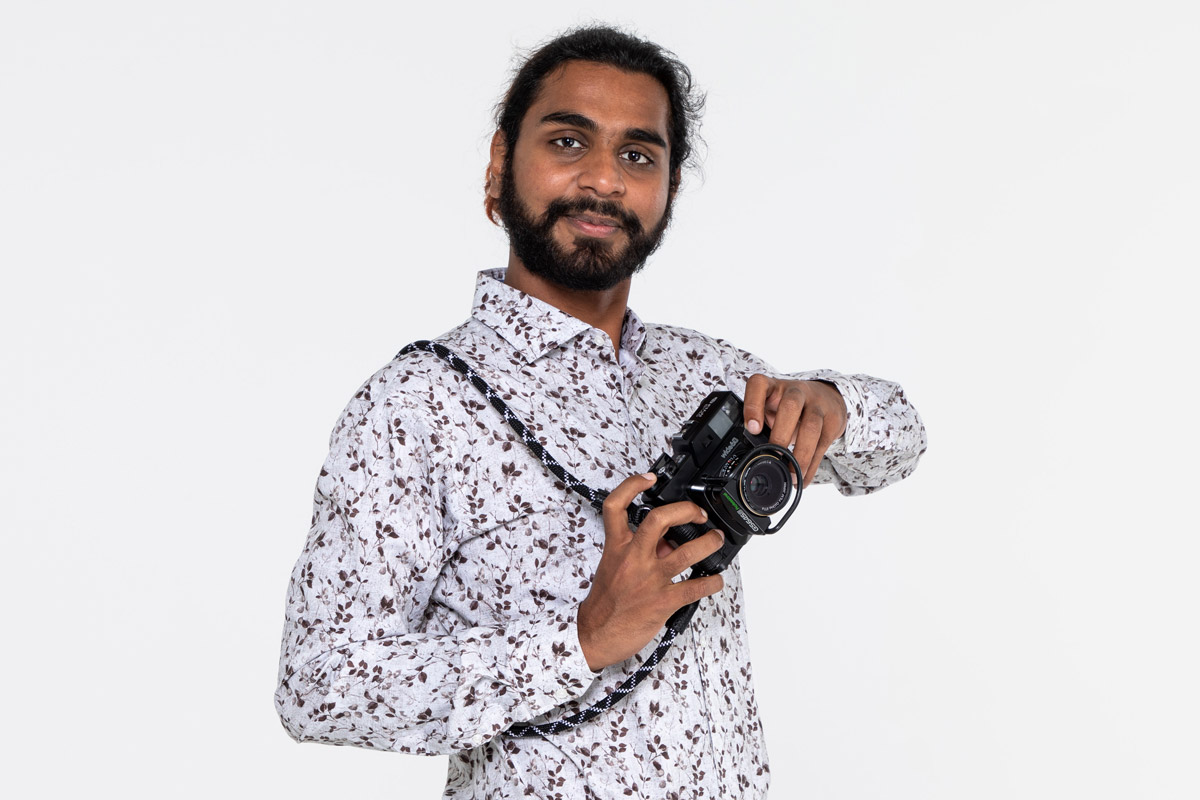Power, Violence, and Marginalization
Meet political science major Abhi Rajshekar ’21
Major: political science
Hometown: Thrissur, India
Thesis adviser: Prof. Tamara Metz
Thesis: “Constructing Subservience: Theorizing Citizenship Under the Incidence of State-Sponsored Violence”
What it’s about: My thesis offers a theoretical account about the nature of citizenship when a state chooses to inflict violence on its own marginalized citizens through its agents that provide security, like the military. I call this form of citizenship “subservient citizenship” and use Kashmir as my case study. I argue that subservient citizenship is produced upon the erasure of institutions that secure political legitimacy and due to the absence of political accountability under this context of state-sponsored violence.
What it’s really about: At its simplest form, citizenship guarantees protection from violence, especially from the state that confers it upon you. How is citizenship transformed when a state chooses to inflict violence on its own marginalized citizens?
In high school: I was such a big theater kid and enjoyed performing or working behind the scenes.
Influential professor: In Latin American Politics, Prof. Mariela Daby [political science] led an inclusive and intellectually stimulating conference where we discussed issues that had important ethical considerations: What is the relationship between dignity and equality? What does a process of meaningful reconciliation look like for marginalized individuals that have been subject to indiscriminate violence and state negligence? Beyond this class, Mariela was extremely influential in my development as a scholar, pushing me to become a better version of myself in a kind and considerate manner.
Concept that blew my mind: Wendy Brown’s conception of neoliberalism—as a political rationality that is deeply embedded in the ways we think and how we understand political concepts like freedom and equality—transformed how I understand political society.
Cool stuff I got to do: As an events coordinator at SEEDS, I invited organizers andactivists to talk about their social justice work, why it matters, and how Reed students can get involved. I received support from the Social Justice Research and Education Fund to work on a project with Prof. Jacob Longaker [political science] on making campus adjudication procedures more equitable.
Ability developed at Reed: Reed encouraged me to be kinder to myself and to incorporate ways of living that nourish and revitalize my body and my mind. I learned how to identify my limits, and to ask for help when I need it.
Help along the way: Reed gave me a generous financial aid package, and I received immense support from the directors at International Student Services, SEEDS, and Multicultural Resource Center, who made me feel like I belonged here.
How Reed changed me: Reed taught me how to become a better advocate—for myself and for the communities I am a part of. I developed the conviction I need to disrupt and challenge the oppressive systems and practices I see around the world.
What’s next: A PhD in political science at UC Irvine.
